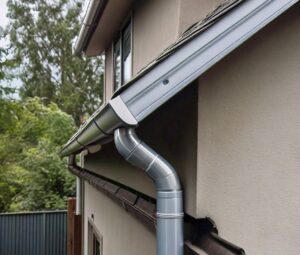Windows are essential elements of any building, providing light, ventilation, and a view to the outside world. However, they can become marred with paint splatters, whether from a sloppy painting job or accidental spills. Cleaning paint from windows requires patience, the right tools, and techniques to avoid damaging the glass surface. In this guide, we’ll dive into various methods and tips to effectively remove paint from windows, restoring their clarity and functionality.
Understanding the Importance of Clean Windows
Before diving into the cleaning process, it’s crucial to understand why clean windows matter. Clean windows enhance the aesthetics of your home or office, making the space look brighter, more inviting, and well-maintained. Additionally, clean windows allow natural light to penetrate indoors, reducing the need for artificial lighting and creating a more pleasant environment.
Common Challenges with Removing Paint from Windows
Removing paint from windows presents several challenges, including:
- Adhesion: Paint can adhere firmly to glass surfaces, making it difficult to remove without causing damage.
- Different Paint Types: Various types of paint, such as latex, oil-based, or acrylic, require different removal methods.
- Safety Concerns: Some paint removal methods involve the use of chemicals or heat, which can pose safety risks if not handled properly.
- Potential Damage: Improper paint removal techniques can scratch or etch the glass, leading to permanent damage or distortion.
Preparation Steps
Gathering Materials
Before starting the paint removal process, gather the following materials:
- Chemical paint remover
- Scraper or razor blade
- Clean cloths or towels
- Gloves and protective eyewear
- Drop cloths or plastic sheeting
Protecting Surrounding Areas
Cover nearby surfaces, such as window frames, walls, and floors, with drop cloths or plastic sheeting to prevent damage from paint splatters or drips. Use painter’s tape to mask off areas adjacent to the windows for a clean finish.
Methods for Removing Paint
1. Chemical Paint Removers
Chemical paint removers are effective for removing stubborn paint from windows. Apply the remover evenly to the painted surface and allow it to penetrate the paint layers. Use a scraper or brush to gently remove the softened paint, then clean the window with water and detergent.
2. Scraping Technique
Carefully scrape away the paint using a scraper or razor blade held at a slight angle to avoid scratching the glass. Work in small sections, applying gentle pressure to lift the paint without damaging the surface. Wipe down the window with warm, soapy water to remove any remaining residue.
3. Heat Gun Method
Use a heat gun to soften the paint and make it easier to remove. Hold the heat gun several inches away from the surface and apply heat evenly, moving it in a sweeping motion. Once the paint softens, use a scraper to gently lift it from the glass. Clean the window with a solvent or soapy water to remove any residue.
4. Solvents and Oils
Apply solvents or oils to the painted surface and allow them to soak for several minutes to loosen the paint. Use a scraper or brush to gently remove the softened paint, then clean the window with warm, soapy water.
Cleaning and Restoring the Windows
1. Washing and Rinsing
Prepare a solution of warm water and mild detergent and use a clean cloth or sponge to wash the window surfaces. Rinse with clean water to remove any soap residue, then dry the windows with a lint-free cloth or squeegee.
2. Buffing and Polishing
Use a glass cleaner or vinegar solution and a microfiber cloth to buff the windows in circular motions. For added shine, apply a glass polish or wax using a clean cloth, then buff the windows again to remove any excess polish.
Maintenance Tips
Regular Cleaning Routine
Establish a cleaning schedule to ensure that your windows remain free of paint splatters and other debris. Clean your windows at least once every few months, or more frequently if needed.
Inspecting for Damage
Regularly inspect your windows for signs of damage, such as cracks, chips, or scratches. Address any issues promptly to prevent further damage and maintain the integrity of your windows.
Seeking Professional Help:
- If unsure about tackling the paint splatters or dealing with intricate window designs, consider seeking professional window cleaning services.
- Professionals have the expertise and tools to safely remove paint without causing damage to windows.
- If you are in Kitchener, explore professional window cleaning Kitchener services to ensure thorough and efficient removal of paint splatters.
- If you are a Guelph resident, consider scheduling regular window cleaning appointments with reputable companies in Guelph to maintain the clarity and cleanliness of your windows.
Conclusion
In conclusion, removing paint from windows requires patience, the right tools, and proper techniques. By following the methods outlined above, you can effectively remove paint splatters and restore the clarity and beauty of your windows. Where ever you live, maintaining clean windows enhances the appearance of your property and improves your overall satisfaction and enjoyment of your space. Remember, taking care of your windows not only enhances the aesthetics but also prolongs their lifespan, ensuring long-term enjoyment and functionality.
Frequently Asked Questions
Can I use household items like vinegar or baking soda to remove paint from windows?
- While household items can sometimes help with minor paint stains, they may not be as effective as specialized paint removers, especially for stubborn or dried paint.
Is it safe to use a razor blade to scrape paint off windows?
- Yes, it can be safe to use a razor blade for scraping paint off windows, but caution is necessary to avoid scratching the glass. Ensure the blade is sharp and held at the correct angle to minimize the risk of damage.
What if I accidentally scrape or scratch the glass while removing paint?
- If minor scratches occur during the paint removal process, they can often be buffed out using a glass polishing compound. For deeper scratches or damage, consider consulting a professional glass repair service for assessment and repairs.
Can I repaint the windows after cleaning off old paint?
- Yes, once the windows are thoroughly cleaned and any damage repaired, they can be repainted as desired. Ensure the surface is clean and dry before applying new paint to achieve the best results.
How can I prevent paint from splattering onto windows during future painting projects?
- To prevent paint splatters on windows, use masking tape or painter’s tape to protect the glass edges before painting. Additionally, cover the windows with plastic sheeting or newspaper to shield them from accidental spills or drips.
Are there any environmentally-friendly paint removal methods for windows?
- Yes, some eco-friendly paint removal products are available on the market, which are safer for both users and the environment. Look for products labeled as biodegradable or environmentally-friendly when selecting a paint remover for your windows.
What should I do if I encounter stubborn paint spots that won’t come off with traditional methods?
- If stubborn paint spots persist, consider seeking professional assistance from a window cleaning or restoration service. They may have access to specialized tools and techniques for removing stubborn paint without damaging the glass.
Can I use a pressure washer to remove paint from windows?
- While pressure washers can be effective for cleaning outdoor surfaces, they are not recommended for removing paint from windows. The high pressure could damage the glass or force water into the window frame, causing potential leaks or damage.
How often should I clean my windows to prevent paint buildup?
- The frequency of window cleaning depends on factors such as location, climate, and exposure to environmental elements. Generally, aim to clean your windows at least twice a year, or more frequently if you notice paint splatters or other debris accumulating.
Is it possible to remove old, dried paint from windows without damaging the glass?
- Yes, it’s possible to remove old, dried paint from windows with the right tools and techniques. Consider using a combination of methods such as chemical paint removers, scraping, or heat guns, taking care to avoid excessive force or pressure that could damage the glass surface




